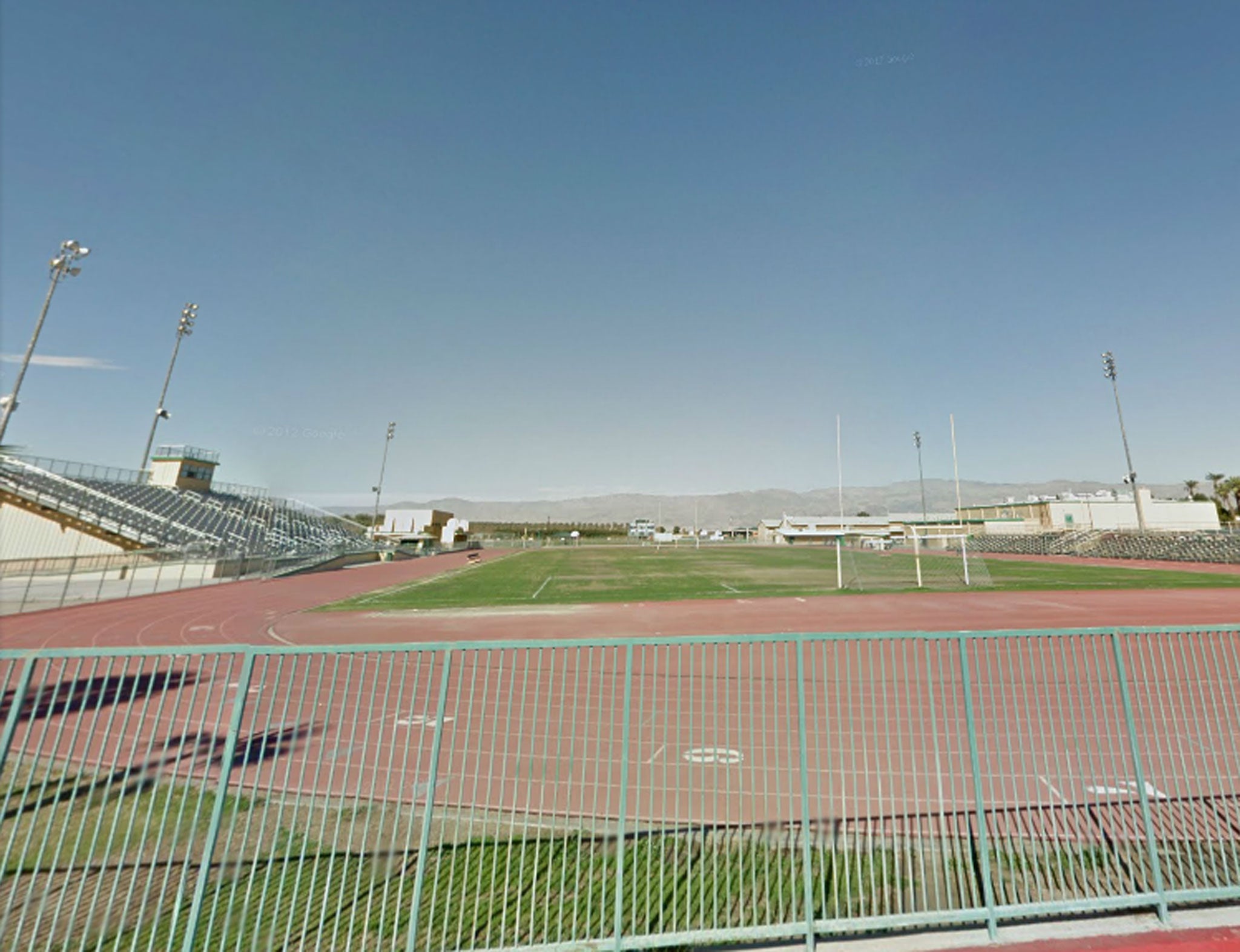California high school criticised for using Arab stereotypes

Your support helps us to tell the story
From reproductive rights to climate change to Big Tech, The Independent is on the ground when the story is developing. Whether it's investigating the financials of Elon Musk's pro-Trump PAC or producing our latest documentary, 'The A Word', which shines a light on the American women fighting for reproductive rights, we know how important it is to parse out the facts from the messaging.
At such a critical moment in US history, we need reporters on the ground. Your donation allows us to keep sending journalists to speak to both sides of the story.
The Independent is trusted by Americans across the entire political spectrum. And unlike many other quality news outlets, we choose not to lock Americans out of our reporting and analysis with paywalls. We believe quality journalism should be available to everyone, paid for by those who can afford it.
Your support makes all the difference.A high school in California has been criticised for using what some say are damaging stereotypes of Arabs.
Coachella Valley High School is in Southern California, 140 miles east of Los Angeles. Its teams are known as the Coachella Valley Arabs, and its campus buildings are adorned by murals of caricature Arab men in kiffeyeh headscarves riding magic carpets with harem girls.
Most controversially, their mascot's picture is allegedly an "angry Arab" stereotype.
Abed Ayoub, legal and policy director for the American-Arab Anti-Discrimination Committee (ADC) told Al-Jazeera America: "The mascot is basically an angry ‘Arab’ head – hooknose, long beard, headscarf and all."
He added: "And what makes it worse is that it's coming from a school district. They’re supposed to be teaching kids to respect other cultures."
He has sent a letter to the school's superintendent, Darryl Adams, describing the mascot as "harmful" and "demeaning" to the Arab-American community, and calling on the branding to be pulled.
Mr Adams said he took the issue seriously and that he believes a compromise is possible.
He said: "It's not so much the name but the depiction of the mascot.
"I'm from Memphis, Tennessee, so I understand how people can look at different symbols and caricatures. I look at it as an educational opportunity for our students and staff to discuss it.
"Things evolve over time, and it's the 21st Century and it's 2013, and this group feels we need to look at it and we will."
The local area has a strong tradition of Arabian association and imagery, stemming from the region's industry growing and selling crops which were brought from the Middle East. For example, 95 per cent of America's dates grow in the valley.
Some of the city's architecture has a Middle Eastern influence, and a nearby town is even called Mecca.
David Hinkle, 69, graduated from the school in 1961 and headed the board of the alumni association for years. He insisted that the high school’s mascot is not demeaning, saying: "I don’t think it's meant to be insensitive. It's been that way for 50 or 60 years."
And Art Montoya, who graduated in 1956, said: "I have heard very few comments on our mascot name. Each time that I heard it, it came from a shallow-minded person that I never took serious."
"We have been Arabs since the 1930s and are proud of it."
Join our commenting forum
Join thought-provoking conversations, follow other Independent readers and see their replies
Comments